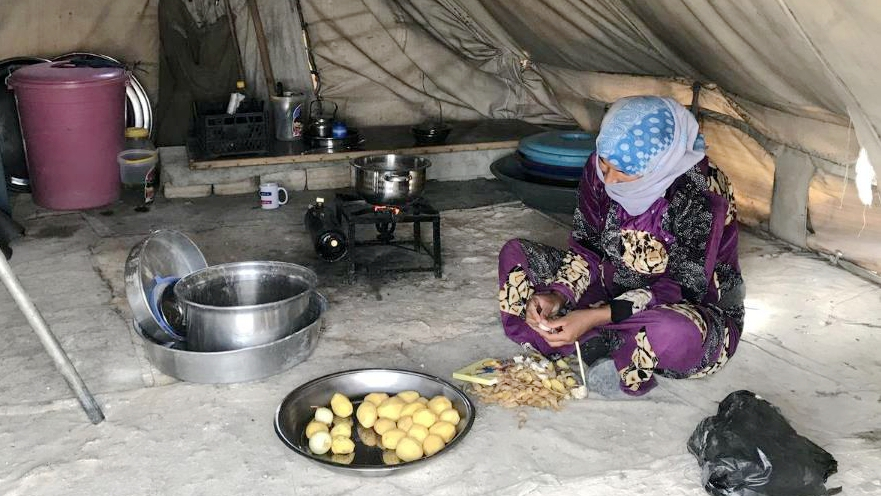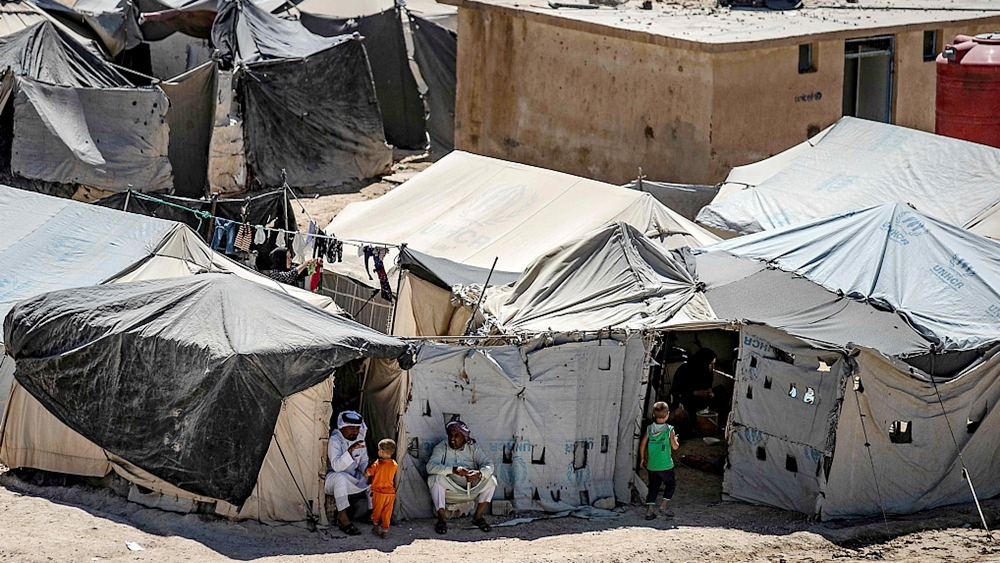
A woman prepares food in the Mabrouka camp, near Ras al-Ain, October 16, 2019. /Reuters Photo
A woman prepares food in the Mabrouka camp, near Ras al-Ain, October 16, 2019. /Reuters Photo
Aid agencies said on Thursday they were struggling to meet the needs of up to 200,000 civilians who fled fighting in northeast Syria and reported water shortages in the Syrian city of Hasaka.
A week-old Turkish military offensive prompted Mercy Corps and Medecins Sans Frontieres (Doctors Without Borders) to suspend most activities and pull out foreign staff.
The assault came soon after U.S. President Donald Trump announced U.S. forces were withdrawing from the area, leading critics to accuse him of abandoning Kurdish militia who had helped the United States fight ISIL.
The United Nations and the International Committee of the Red Cross (ICRC) are still operating in the northeast where ICRC now estimates that 170,000 to 200,000 people are displaced.
"We are not withdrawing or reducing our activities in the northeast," said ICRC spokeswoman Ruth Hetherington.

A general view of the al-Hol camp in al-Hasakeh governorate in northeastern Syria, August 8, 2019. /VCG Photo
A general view of the al-Hol camp in al-Hasakeh governorate in northeastern Syria, August 8, 2019. /VCG Photo
The field hospital run by ICRC and the Syrian Arab Red Crescent at al-Hol camp, with 68,000 people including families of ISIL fighters, was operating as usual, she said, saying it was distributing water and meals to some residents.
In the city of Hasaka, residents and displaced people were confronted with water shortages, Hetherington said.
The Alouk water station, which provides water to 400,000 in Hasaka, was out of service after being damaged in fighting, UN Children's Fund (UNICEF) spokeswoman Marixie Mercado said.
UNICEF was trucking water to shelters but the situation was a "critical concern," she said.
MSF said it had evacuated dozens of foreign staff from the northeast after it was unable to negotiate safe access.
"We are trying to maintain supplies in hospitals and medical structures across northeast Syria as much as possible," said Robert Onus, MSF emergency manager for Syria, adding that MSF had been one of main vaccine providers in the northeast.
MSF had delivered medical supplies and equipment, including to Tal Abyad hospital, the biggest in the area serving 200,000 people, Onus said.
Source(s): Reuters